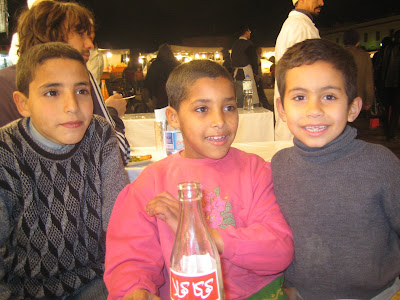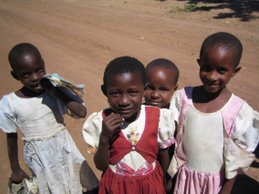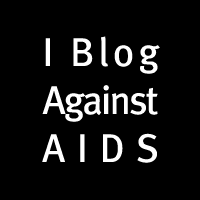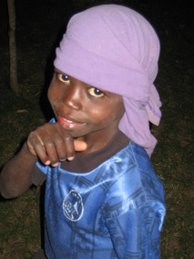Does It Work?
By Edwidge Danticat
Sunday, September 24, 2006;
Page B01
MIAMI A few years ago, as I worked on a documentary film about torture survivors in exile from my native Haiti, I met a young woman who under questioning by a military officer was slapped until she became deaf in one ear, was forced to chew and swallow a campaign poster, and was kicked so hard in the stomach by booted feet that she kept slipping in and out of consciousness in a pool of her own urine and blood. Another woman had an arm chopped off and her tongue sliced in two before she was dumped in a mass grave, miles from her home.
When I met these women, some time had passed since their ordeals. But they could still feel the hammering of the blows and hear the menacing voices, threatening to drown them, dismember them and set them on fire. The younger woman, Marie Carmel, remembers thinking about her mother. Manman will surely die if I'm killed, she thought. I have to stay alive for her. Alerte, whose arm and tongue were severed, kept thinking about her children as she climbed out of the corpse-filled pit and crawled to the side of the road where she found help. Both had no idea how much pain they could endure until then. They wanted to live, they remembered, to defy their torturers, to tell their stories.
"There is no need for torture," wrote Jean-Paul Sartre. "Hell is the other." Those women saw hell and came back. However, neither one told their torturers what they wanted to know. Marie Carmel did not reveal the names of her fellow pro-democracy activists. Alerte did not divulge the whereabouts of her husband, who was the real object of her captors' search.
For many who remember -- just as these women do, and my own parents do -- what it means to live under a dictatorial regime, a regime in which citizens must leave work or school to witness public executions, torture is not just an individual affliction but a communal one. And now, when political leaders in the United States are asking as as a society to consider not only the legal and moral ramifications of torture but its effectiveness, we are brought closer to these regimes than we may think. If we are part of all that has touched us, as Alfred Tennyson wrote, then we are all endorsers of torture when it is done in our name.
Torture aims for a single goal -- obtaining information -- but it achieves a slew of others. For one thing, it martyrizes the tortured. Think of the old Christlike images of Che Guevara's corpse in Bolivia -- or even of Christ himself.
While working on the documentary and researching the novel it eventually inspired, I interviewed torturers as well as their victims. I realized that torture diminishes us all by numbing us to human distress; the level of callousness in the society rises, with once unimaginable acts suddenly charted and rationalized.
"This is why we have this proverb," one repentant torturer told me, " bay kou bliye pote mak sonje ." The one who strikes the blow might easily forget, but the one who wears the scars must remember.
When seemingly noble ideals -- after all, what can be nobler than wanting to save lives? -- lead us to torture, the path to the torture chamber can find its way to our front door, just as it did for Marie Carmel, Alerte and countless others before them.
"The people who kill and torture and tell lies in the name of their sacred causes . . . " wrote Aldous Huxley, "these are never the publicans and the sinners. No, they're the virtuous, respectable men, who have the finest feelings, the best brains, the noblest ideals."
As a child growing up in a dictatorial state, I always dreaded the pounding I heard at some of my neighbors' doors at night, when many were yanked from their beds never to be seen again. The lucky ones returned from a pit that was as much a physical place as a darkness that would always surround them. They were missing an eye or some teeth; they showed swelling that would take weeks to go down or shaking that worsened over time. These markers of torment first drew me to people such as Marie Carmel and Alerte, women who could have been my mother or myself.
When I first encounter men and women who've been tortured, I notice their dramatic and disfiguring scars. But eventually I recognize their hardened core and, more often than not, their reinforced defiance and renewed commitment to that for which they were abused.
When I meet former torturers, they don't proudly stand up and say, "Here I am, a torturer." Unless they're infamous, they have sought to compartmentalize their lives. At a lively game of dominoes or across a family dinner table, they can distance themselves from their past in a way that their victims can never even attempt. Occasionally, though, they are unwittingly exposed by a child who might say, "Papa was in the military and worked in such-and-such prison at such-and-such time." The torturers squirm and change the subject, knowing they've been unmasked.
Rare is the opportunity, as we seem to have now, for the torturer to plot out methods in advance and in public. Should a person be strapped to a board and have water poured down his nose? Should she be forced to stand for long periods of time in the cold without being allowed to sleep? Should he be slapped in the chest, face or belly? These are almost novelistic questions with no more rational answers than some haywire plot or dark verse.
After first reading it as a young girl newly escaped from Jean-Claude Duvalier's dictatorship in Haiti, I recently rediscovered a poem called "The Colonel" by Carolyn Forché. The narrator describes dining with a dictator who, after the luxurious meal, empties a bag full of human ears on the table.
"I am tired of fooling around," he tells his visitor. "As for the rights of anyone, tell your people they can go [expletive] themselves."
He lifts his glass of wine, and with one sweep of his arm, brushes the ears to the floor.
When the ears hit the ground -- like those of all my disappeared neighbors, I imagine -- the narrator notices that some of them are pressed to the floor while others are catching "this scrap of his voice." My fear is that when it is most needed, none of our ears will bother to catch any voices at all. Then will the tortured see any reason to live on? And if they live, whom will they tell?
Haiti1791@aol.com
Edwidge Danticat, a Haitian American writer, is the author of "The Dew Breaker" (Knopf).
 On Tuesday we had a wonderful day being pampered at the spa and set off for Essaouira Wednesday morning(ish!). After many dodgy African bus rides between us we were expecting to show up and see a piece of crap that would make the journey a bit of a religious experience, but no, the bus looked like a National Express (nicer than Greyhound for the US folks)! We climbed in and two and a half (pretty comfortable) hours later we arrived on the coast.
On Tuesday we had a wonderful day being pampered at the spa and set off for Essaouira Wednesday morning(ish!). After many dodgy African bus rides between us we were expecting to show up and see a piece of crap that would make the journey a bit of a religious experience, but no, the bus looked like a National Express (nicer than Greyhound for the US folks)! We climbed in and two and a half (pretty comfortable) hours later we arrived on the coast.


 The Essaouira coast
The Essaouira coast































